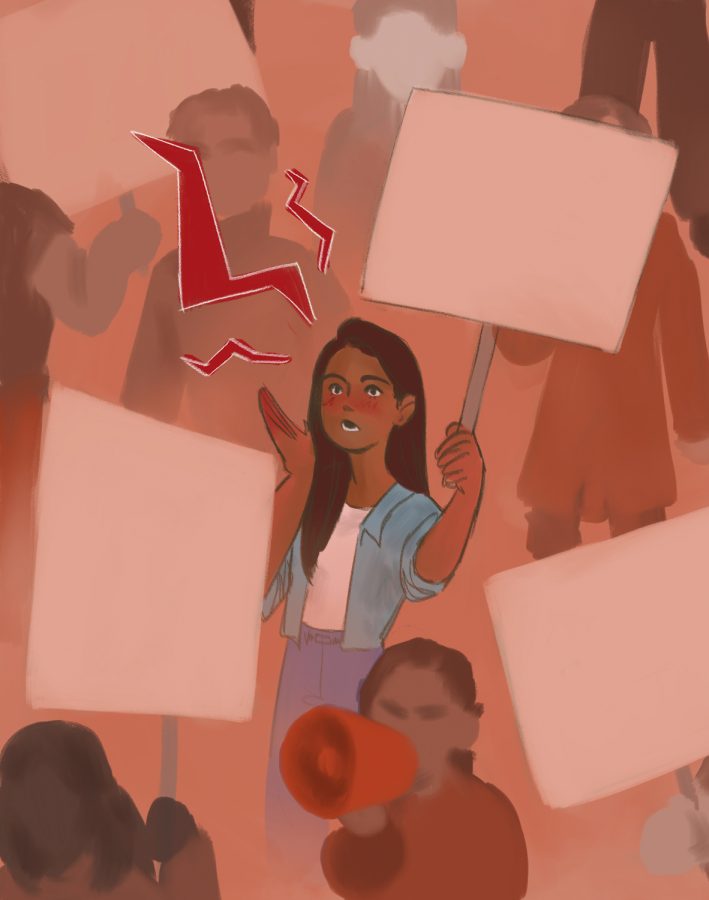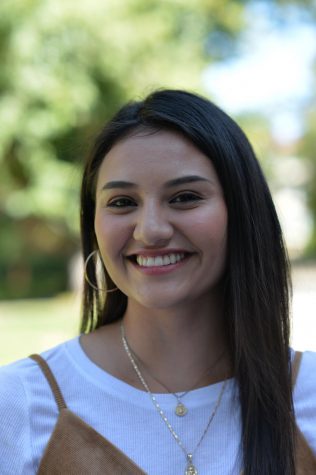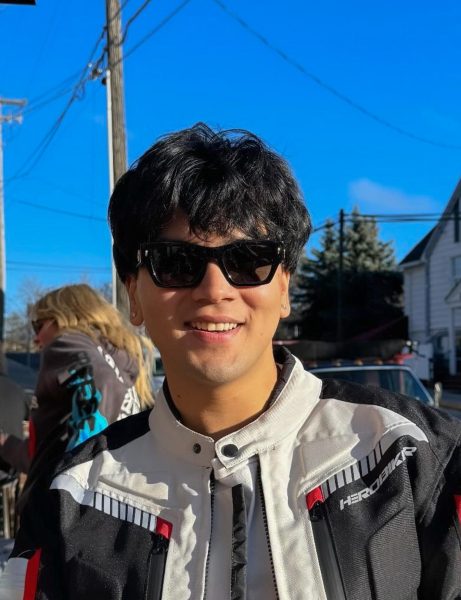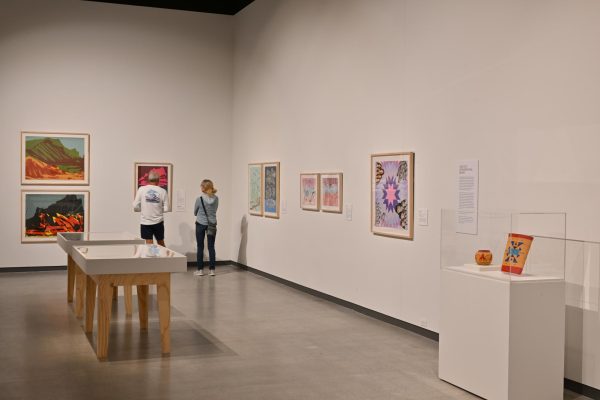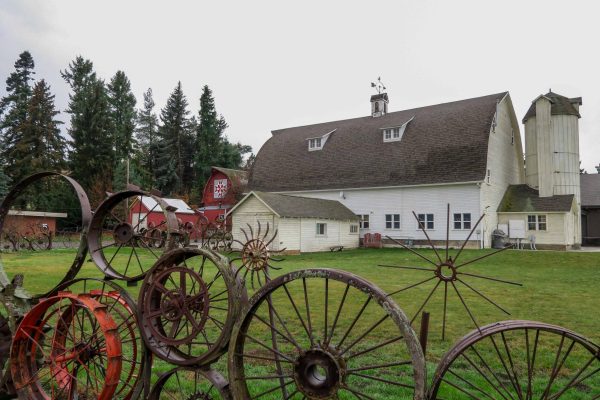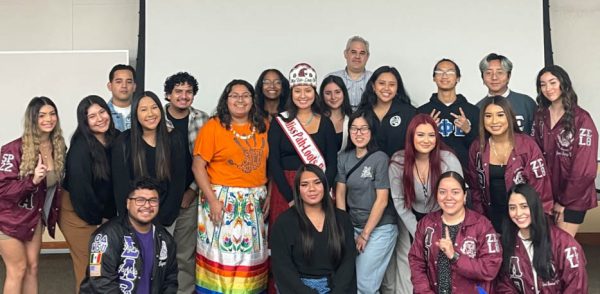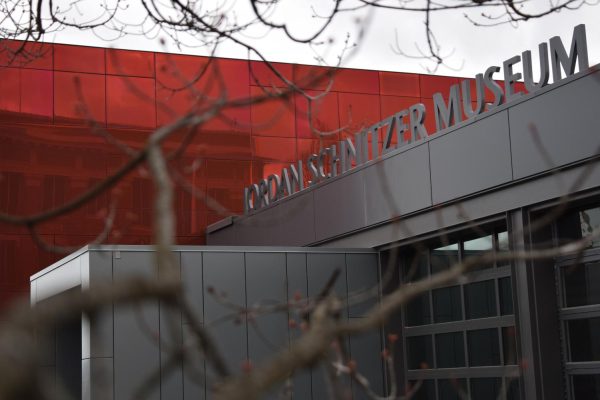No cuestiones mi identidad, no puedes elegir por mi
Evergreen managing editor writes on media for writers, communities of color
The experiences and knowledge journalists of color is too often brushed aside as bias, and that negatively affects how those communities are represented.
October 15, 2020
Sometimes, I’ll close my eyes and remember seeing la bandera de México wavering high above my head as I took long strides in an attempt to keep up with hundreds of others calling for immigrant rights, my 10-year-old hand clutching tightly onto my father’s hand.
As a young girl, I had a vague understanding that my immigrant community was always under threat. But I didn’t understand why others hated us so much when we spoke Spanish at the supermarket, or celebrated with a loud enthusiasm, which is the only way we learned to back home — en los ranchos de Michoacàn.
I was privileged, to be born in the U.S., and every day I thanked my lucky stars that my parents gained citizenship and I didn’t have to ever worry about coming to an empty home or the unbearable silence of knowing a loved one is thousands of miles away. I knew many others, in my family and outside of it, who didn’t have that luxury. So I felt selfish.
I grew up and made it my mission to help my undocumented family and strangers in any way I could. It was a legacy of stories similar to those of my parents, the ones I grew up with about them not having anything to eat at night, working the land at 10 years-old, not being able to attend primary school because it was miles away.
When Donald Trump became president, it caused a wave of panic and fear among many undocumented and mixed document families. A close undocumented couple had drafted a letter, passing guardianship of their children onto my parents, in case the day came that they would be torn apart. It’s these harsh immigration policies Americans support without a second thought because they have no idea what it’s like to be us — and many don’t care to.
My parents weren’t the only ones to receive these letters. As I walked to my calculus class and took my seat in the back, I couldn’t concentrate on the lesson at hand because my mind kept going back to how unfair it all was. Here they were, scared for their future, while everybody else got to ignore it.
So I thought back to that first immigrant rights rally my parents had taken me to, and the constant attacks my community faced for having the audacity to exist. But I wasn’t angry, I was sad.
I couldn’t hate the people that hated my community, but I wished I could. It would make everything so much easier, but I understood something they couldn’t — and that was that we are all victims of circumstance. They weren’t born bigots, they’d learned it.
All of this made me close myself off to strangers. I advocated for immigrant and undocumented communities in my youth, but when I made the decision to become a journalist, I was made to choose between supporting my community and families and the faux idea of “objectivity” that has become the foundation of the journalism industry.
How am I supposed to bury who I am, negate my community and look the other way in the face of clear human rights violations? I can’t, and if that makes me a “fake journalist,” then so be it.
Don’t get me wrong, I believe wholeheartedly that we need to be fair and truthful as journalists, but the way we think of objectivity only furthers the divide between underrepresented communities and the media. In our quest for objectivity, we do the bare minimum by quoting opposing sides and letting the public ‘decide for themselves.’ We tend to ignore underrepresented communities and when we make the conscious decision to not ignore and be careful of how we frame their stories, we are accused of advocacy journalism. I have been.
So if attempting to minimize these generational harms perpetrated by the media is advocacy journalism, what do we call the reckless disregard of historical context that fuels harmful false narratives?
My validity as a journalist has come into question every time I share that my parents are immigrants, that I worked in the fields alongside them and that some members of my family are undocumented. Every aspect of my identity is questioned in a way most white journalists will never know. And when I call it out I’m being angry, careless, sensitive.
But my lived experiences are mine, and I cannot shed my identity or mold it to conform to outdated journalistic practices. I, just like many other journalists of color, have insight into many communities that are only gained through years of beat reporting, because we’ve lived it.
My life is not a conflict of interest.


